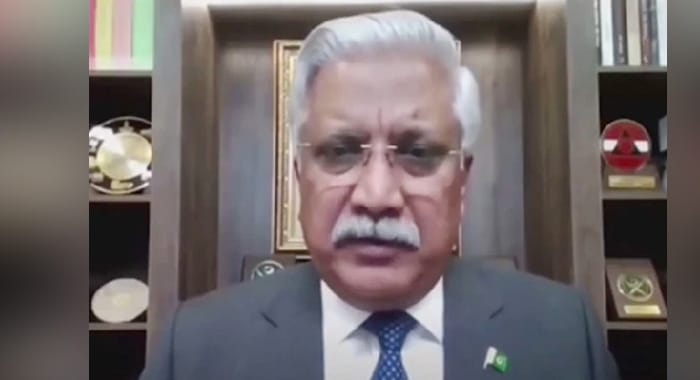The recent Battle of Baniyan Marsous has once again underscored the centrality of the Kashmir dispute to lasting peace in South Asia, said former Chief of General Staff of the Pakistan Army, Lieutenant General (Retired) Muhammad Saeed, in a wide-ranging and exclusive interview with Russian broadcaster RT.
Lt Gen (R) Saeed asserted that the scale and intensity of the conflict have made it impossible to overlook the unresolved status of Jammu and Kashmir, adding that any future peace framework for the region must begin with a just and durable resolution of the dispute.
“The Battle of Baniyan Marsous has reaffirmed that sustainable peace in the region cannot be achieved without addressing the Kashmir issue,” he said. “It is no longer a bilateral matter, but a pressing international concern with implications for global security.”
He said the Pakistani Armed Forces exercised their legitimate right to self-defence in the face of unprovoked Indian aggression, responding decisively and effectively. “Our response was proportionate and precise. It was this resolute posture that ultimately compelled India to agree to a ceasefire,” he noted.
Describing the ceasefire as a bold and necessary step, Lt Gen (R) Saeed said it came amid growing international pressure and was driven by a recognition on both sides that escalation carried grave risks. “It was not a sign of weakness—it was a statesmanlike decision forced by realities on the ground and international diplomatic momentum,” he added.
The retired general detailed the scope of the conflict, saying that it spanned approximately 3,000 kilometers, with missile strikes and heavy shelling taking place along the Line of Control, the international border, and even reaching areas in Gilgit-Baltistan. He said both militaries showed restraint and professionalism in enforcing the ceasefire within 24 to 36 hours of the agreement.
Reflecting on the past, Lt Gen (R) Saeed lamented that despite multiple ceasefire arrangements over the last 78 years, regional peace has remained elusive due to the lack of progress on Kashmir. He reminded the international community that the United Nations recognized Kashmir as an international dispute in 1948 and that until a fair solution is found, ceasefires will remain fragile and temporary.
He categorically rejected India’s claims of targeting terrorist infrastructure, stating that Indian forces had, in fact, struck civilian areas. “They bombed mosques and destroyed homes. Women and children were among those martyred. These are not military objectives—they are war crimes,” he said.
Condemning the Pahalgam incident, Lt Gen (R) Saeed said Pakistan had offered full cooperation and evidence-sharing, but India had failed to present any credible proof to Islamabad or to any international body. “If there is an ongoing investigation, then by what measure of international law does a state reserve the right to strike unilaterally before reaching a conclusion?” he questioned.
He also recalled India’s refusal to allow independent investigations into incidents such as Pathankot, Uri, and the Mumbai attacks, stating that unsubstantiated accusations and denial of transparency have become part of India’s strategy to deflect global scrutiny.
Rejecting Indian narratives, he urged international journalists and observers to verify the ground reality themselves. “Let the world see what has really transpired. The facts speak louder than propaganda.”





